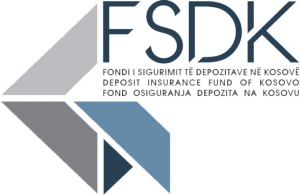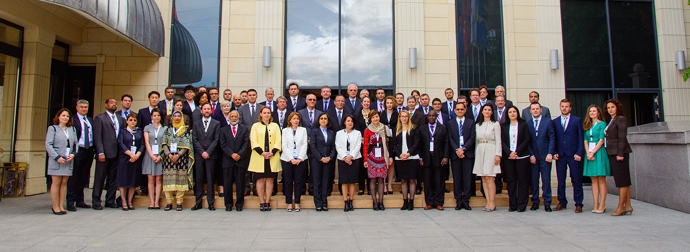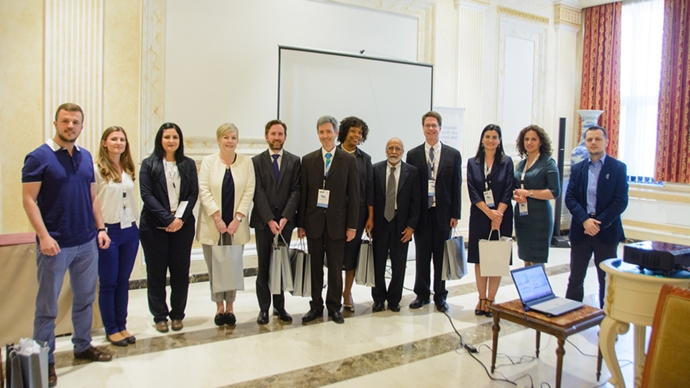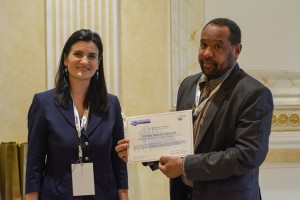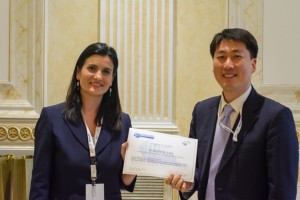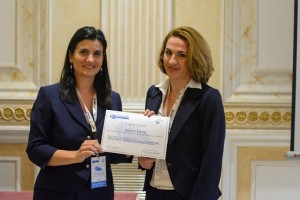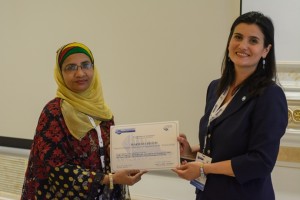DIFK hosted IADI’s 8th Regional Workshop on Assessment of Compliance with the Core Principles for Effective Deposit Insurance Systems
News
DIFK has had the privilege to host IADI’s 8th Regional Workshop on Assessment of Compliance with the Core Principles for Effective Deposit Insurance Systems, held in Prishtina, at Swiss Diamond Hotel, from 4 to 6 of May 2015. The workshop was attended by fifty participants, which included IADI members, representatives of international organizations, and representatives of Kosovo safety-net organizations.
The International Association of Deposit Insurers (IADI) is a global non-profit organization established to enhance the effectiveness of deposit insurance systems by promoting research and guidance on deposit insurance as well as international cooperation, currently represented by 79 deposit insurers from 76 jurisdictions.
The Core Principles, issued by IADI and the Basel Committee on Banking Supervision (BCBS) in 2009, provide policy guidance on the design of deposit insurance systems, specifically identifies broad policy direction for effective deposit insurance systems. The Core Principles are also used by the International Monetary Fund (IMF) and the World Bank, in the context of the Financial Sector Assessment Program (FSAP), to assess the effectiveness of jurisdiction’s deposit insurance systems and practices. The Core Principles are also included in the FSB’s list of key standards for sound financial systems.
The Core Principles and its methodology are used for evaluating national deposit insurance systems[1] and assessing the degree of compliance with international standards. The assessment of compliance of the Deposit Insurance System in Kosovo with the Core Principles is also part of the closing assessment of DIFK’s project component of the Financial Sector Strengthening and Market Infrastructure Project (FSSMIP) with the World Bank (on behalf of IDA). The assessment was comprehensive and action-oriented with focus on the Deposit Insurance System of Kosovo and its relationship to the financial safety-net (FSN) for the supported functions. The assessment of compliance with Core Principles will identify strengths and weaknesses in the existing deposit insurance system, and form a basis for remedial measures by DIFK and policy makers.
The assessment of compliance of Kosovo’s Deposit Insurance System was made using the revised Core Principles[2] approved in October 2014 and accepted by Financial Stability Board for inclusion in the FSB Compendium of Standards in Jan 2015. The assessment was conducted by well-known deposit insurance experts from the following organizations, who have participated in the design of the Core Principles, US FDIC, CDIC of Canada, UK FSCS, World Bank and Switzerland’s esisuisse.
In the welcoming remark, Managing Director, Mrs. Violeta Arifi-Krasniqi, stated of DIFK’s delight “that this event has taken international dimension with participation from countries beyond the region and continent and thanked all participants for taking time from their busy agenda to participate in the workshop! Further Mrs. Arifi-Krasniqi attested DIFK’s high value for its membership in IADI as “it has served as knowledge hub on deposit insurance while building the newly established Deposit Insurance System in Kosovo only four years ago”.
To open the ceremony of the event, Mrs. Arifi-Krasniqi has had the honour and privilege to invite, Governor of the Central Bank of Kosovo, Mr. Bedri Hamza and the Secretary General of IADI, Mrs. Gail Verley.
In his speech Governor Hamza stated his gratefulness to the International Association of Deposit Insurers (IADI) for the opportunity provided to DIFK in hosting the event and that the Deposit Insurance System of Kosovo is assessed with the recently revised Core Principles. In addition Governor Hamza took the opportunity to thank KfW (on behalf of the German Government), the Ministry of Finance (on behalf of the Kosovo Government), and the World Bank for their support in the establishment and capitalization of the deposit insurance system in Kosovo. “The total capital contribution made to Kosovo DIS amount to €17,5 million, where the Government of Kosovo (through the Ministry of Finance) contributed €11 million, while the German Government (through KfW) contributed with €6,5 million. A tranch of payment, part of the capital contribution by the Government of Kosovo in the amount of €2,9 million was financed by the World Bank, through IDA loan”, emphasized Governor Hamza.
In her opening remarks, the Secretary General, Mrs. Gail Verley, thanked everyone for the participation and extended her appreciation to DIFK and everyone who invested their efforts in facilitating the workshop and making this event special. “Indeed, it is special because it marks the first time that the updated set of the IADI Core Principles for Effective Deposit Insurance System will be used for a formal assessment process of a country’s deposit insurance system. IADI’s presence in this workshop shows Kosovo’s determination in seeking the advancement of its safety net and strengthening its deposit insurance system”.
Mrs. Verley stated that the concept of an explicit deposit insurance system continues to gain increased acceptance with increased number of countries offering explicit deposit insurance guarantees from 12 in 1974 to 71 in 1999. Whereas, since the crisis outbreak, it grew from 97 in 2007 to 113 at the end 2014. In parallel, IADI membership base has tripled and in the past two years, IADI has welcomed fourteen (14) new members, including 2 observers”.
On IADI’s Core Principles, Mrs. Verley emphasizes their unique feature of being flexible in application to various deposit insurance circumstances, setting and structures. “The updated Core Principles pair the right protection for retail depositors with more multifaceted aspects of crisis management attractive not only to advanced deposit insurers with more complex, sophisticated mandates (including risk and loss minimizers), but also beneficial for those with less sophisticated mandates, such as pay-box models”. Mrs. Verley further states that the Core Principles are aspirational for deposit insurance agencies in facilitating enhancement of their deposit insurance systems, imposing the need for deposit insurers to follow the evolutionary trend which includes the reinforcement of the desirability of ex-ante funding, the imperative of shortening the reimbursement period, building strong operational independence to interact effectively with other safety net players and encouraging active crisis management and cross border responsibilities for the deposit insurer. “The revised Core Principles are a reflection and embodiment of IADI members’ contributions to global financial stability as the formulation of an international benchmark that is used to assess and, in turn, enhance deposit insurance systems”.
In concluding address, Mrs. Verley stated IADI’s pioneering initiative – the Self-Assessment Technical Assistance Program (SATAP) – aimed at promoting self-assessment by IADI Members. Further IADI has a roster of experts at its disposal – these are a group of highly experienced individuals who support broader financial assessment process and who can serve as assessors in FSAP reviews, SATAPs and the provision of technical assistance to individual jurisdictions. Apart from offering online tutorial and modules, Mrs. Verley stated that “IADI also offers the Capacity Building Program with the aim of assisting jurisdictions in the establishment of a deposit insurance system or enhancements to a deposit insurer’s mandates. The Program identifies IADI Members with various levels of expertise in deposit insurance that may be called upon to provide needed and timely assistance to potential beneficiaries within the Association”.
The workshop participants have had the opportunity to learn of objectives and key changes made to the Core Principles, in a presentation held by Mr. Vijay Deshpande, FDIC. In addition an in depth overview of key features of the Deposit Insurance System in Kosovo and DIFK’s mandate, governance and activities was provided by Mrs. Arifi-Krasniqi.
On the first day of the workshop, the participants learnt of the overview of Kosovo’s financial safety net from the panel of senior representatives of the Central Bank of Kosovo, Ministry of Finance and DIFK. In a panel discussion moderated by Mr. Lucas Metzger, esisuisse, panel members answered different questions related to information sharing as well as collaboration frameworks.
On the last day of the workshop IADI assessors presented their preliminary findings of the compliance of Kosovo DIS with the Core Principles. In addition, in an hour session, the representative of IMF, the World Bank, KfW and EBRD presented their activities in Kosovo.
In the closing remarks of the workshop, Mrs. Arifi-Krasniqi, thanked the assessment team jointly with participants for their valuable contribution in the assessment process of the Deposit Insurance System in Kosovo.
In the response to many acknowledgements received during this workshop for DIFK’s progress, Mrs. Arifi-Krasniqi thanked firstly the Members of the Management Board for their dedication and support in the establishment of DIFK, since very often there would be more than ten items in the agenda! “Without the review and approval there would not have been so many rules and policies referenced in the self-assessment report! Secondly, many thanks goes to the seconded CBK staff (covering Legal, PR, Analyst, Accountant and IT) who have worked for DIFK for a year for their contribution and dedication to work extra and on demand and help us! Special thank goes also to advisers, financed by the German Government (through KFW) and the World Bank who have helped to establish solid foundations. Finally, great thanks to the staff of DIFK who have worked very hard and with utmost dedication from day one they started, specially want to thank them for ensuring that this workshop goes as smooth as it has!
All participants have been awarded Certificates for the attendance and completion of IADI’s 8th workshop on assessment of Compliance with the Core Principles.
[1] Deposit Insurance System refers to the deposit insurer and its relationships with the financial safety-net participants that support deposit insurance functions and resolution processes.
[2] [2] The revised Core Principles may be viewed http://www.iadi.org/docs/cprevised2014nov.pdf
